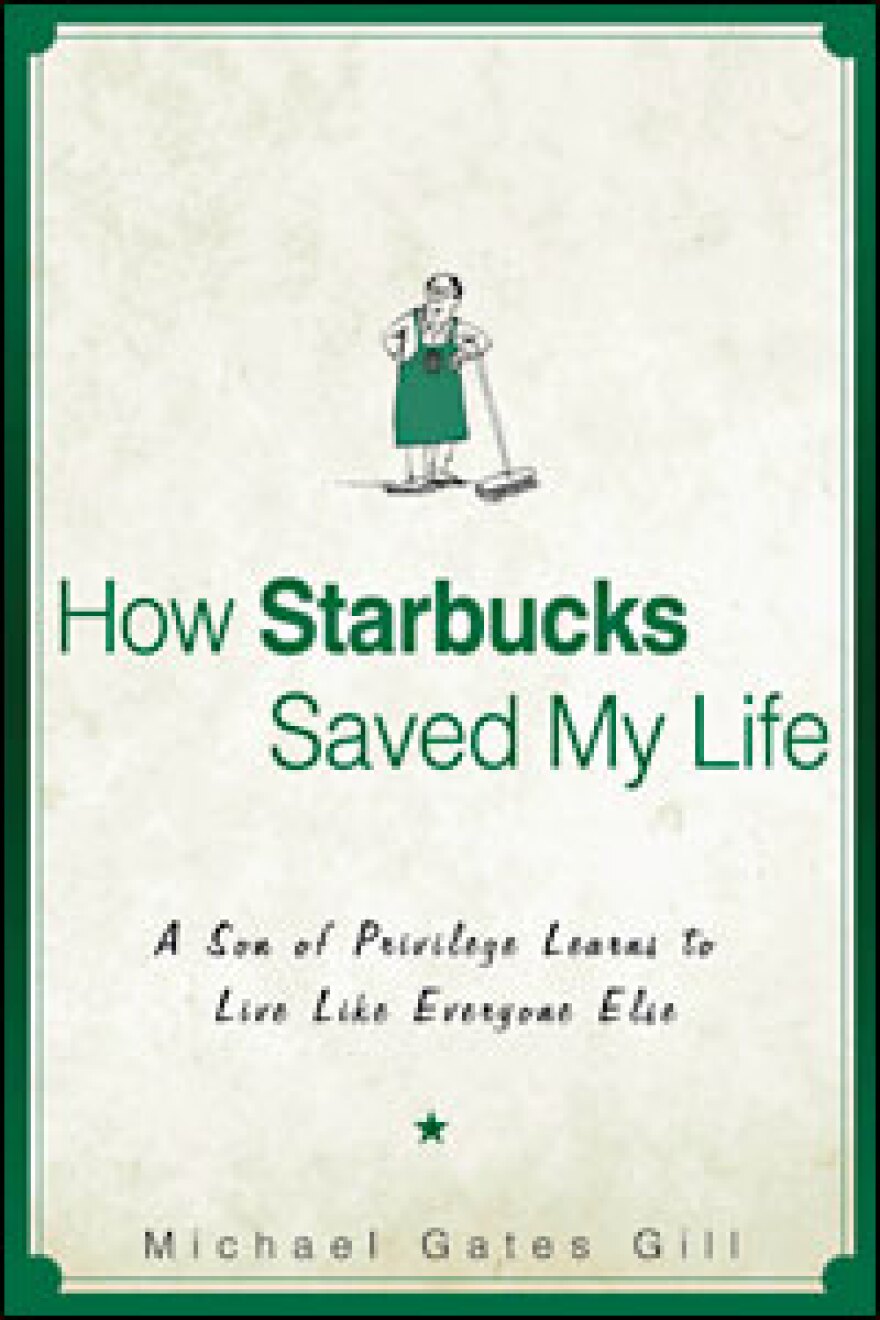
From Drinking Lattes to Serving Them Up
"The humble improve."
-- a quote from Wynton Marsalis, jazz musician, published on the side of a cup of a Starbucks Double Tall Skim Latte
This is the true, surprising story of an old white man who was kicked out of the top of the American Establishment, by chance met a young African-American woman from a completely different background, and came to learn what is important in life. He was born into privilege on the affluent Upper East Side of Manhattan, she into poverty in the projects in Brooklyn. He once had a high-powered advertising job and now had nothing; she came from the streets and now had succeeded — so much so that she was able to offer a stranger a chance to save himself.
This is my story, and like all surprising stories, it starts with an accident.
MARCH
Yes, I'd like a job. I hadn't said those words for thirty-five years. It had been thirty-five years since I had taken my entry-level job at JWT. And it had been ten years since I had been fired from my high-level position at JWT. I had set up my own consulting company, and I got a few good jobs right away from my old clients. Then, slowly but surely, fewer and fewer of my calls were returned. It had been months since my last project. Even a latte was becoming a luxury I could no longer afford.
Now, looking across my latte at this confident, smiling Starbucks employee, I felt sorry for myself. She seemed carefree to me, so young, so full of options. Later, I would learn that she had seen more hardship in her life than I could conceive of having seen in three lifetimes. Her mother, who died when she was just twelve, was a dope addict. She had never known a father. When her mother overdosed, she had been sent to live with an aunt, another single mother, who already had several of her own fatherless children to care for. Her aunt was an aunt from hell. She would later tell me of the horrifying time she had fallen down the cement stairs of the project in Brooklyn where she lived. Her hip was broken, but her harried aunt just screamed at her for being so clumsy and refused to send her to a hospital. The bone set, but in a terrible way that guaranteed constant pain. Despite the confidence that she projected to me that day, she was even then in pain, physical and emotional.
But at that moment I was still at the center of my own universe, and my own problems were all-consuming.
To me, this young woman had great power — the power to employ me. Yes, I would like a job. As soon as the words had come out of my mouth, I was horrified. What was I doing? Yet, at the same time, I knew I wanted a job. I needed a job. And, I presumed, I would easily get a job at this Starbucks store... or would I?
The Starbucks employee arranged the papers in front of her, her smile disappeared, and she gave me a hard look. "So, you really want a job?" she said incredulously, shaking her head. She had clearly become more ambivalent about me as we got into the real possibility that I might work for her.
It suddenly struck me: Her invitation to a job had been a kind of joke. Maybe she had just decided to pass a few minutes making fun of me, the boring, uptight guy who seemed so full of himself. Maybe she had acted on a dare from another employee. But to her surprise, I had taken her up on her invitation.
She eyed me skeptically. "Would you be willing to work for me?"
I could not miss the challenge in her question: Would I, an old white man, be willing to work for a young black woman?
She later confided to me that her angry, bitter aunt had told her repeatedly as she was growing up, "White folks are the enemy." From her point of view, she was taking a risk in even offering me a job. She was not willing to go an inch further until she was sure I would not give her any trouble.
I too was ambivalent. The whole situation seemed backward to me. In the world I came from, I should have been the one being kind enough, philanthropic enough to offer her a job, not the one supplicating for the position. I knew that was a wrong sentiment to feel, terribly un-PC, but it was there nonetheless, buzzing under the surface of the situation. This young woman clearly didn't care if I said yes or no to her job offer. How had she gotten to be such a winner? My world had turned upside down.
Copyright © 2007 by Michael Gates Gill. All rights reserved.
Copyright 2023 NPR. To see more, visit https://www.npr.org. 9(MDM3NjYwMjA5MDE1MjA1MzQ1NDk1N2ZmZQ004))

